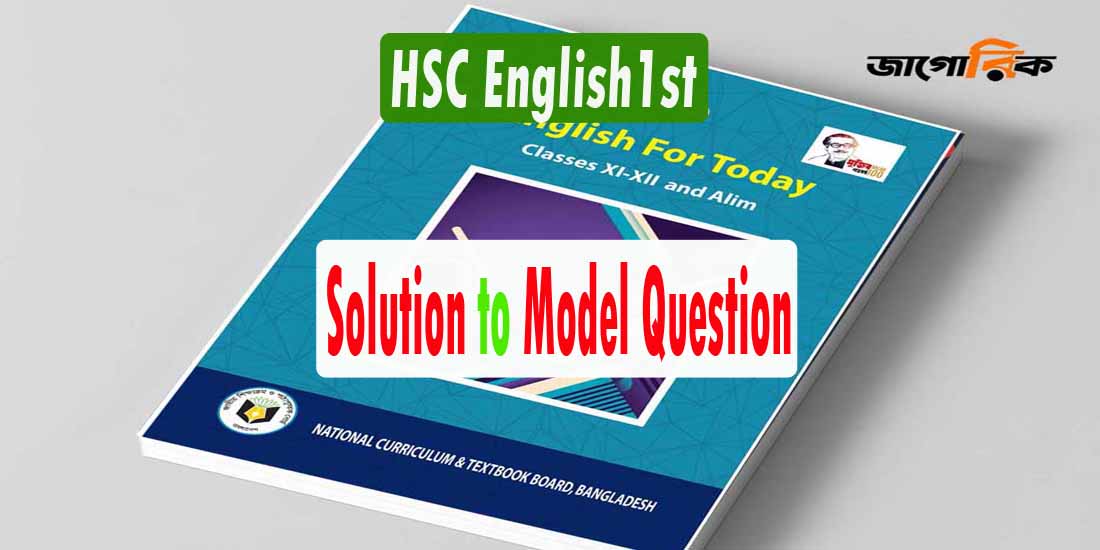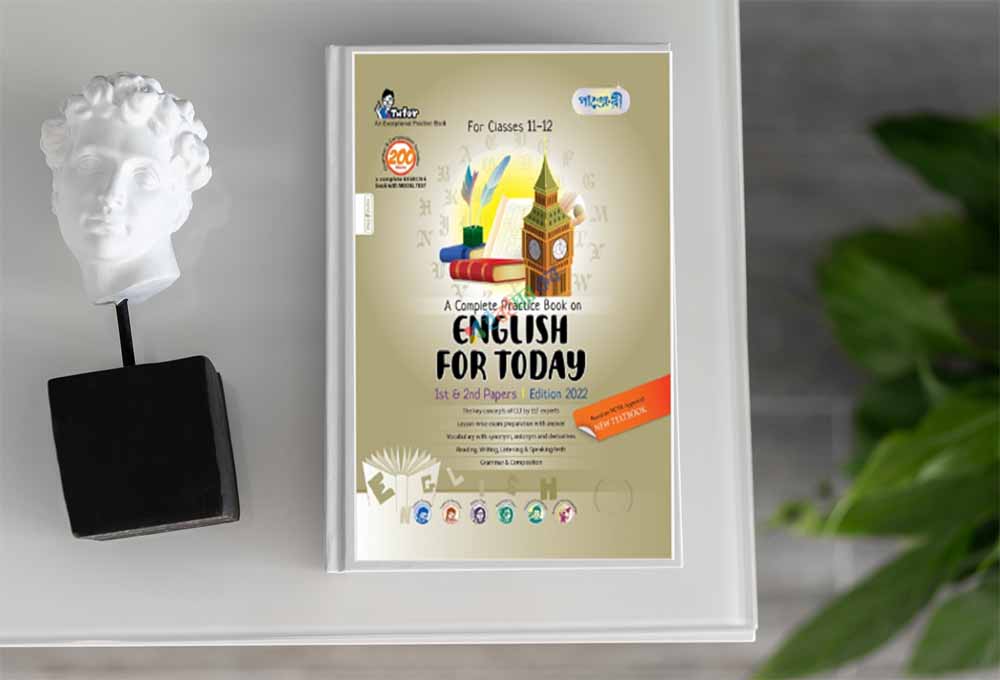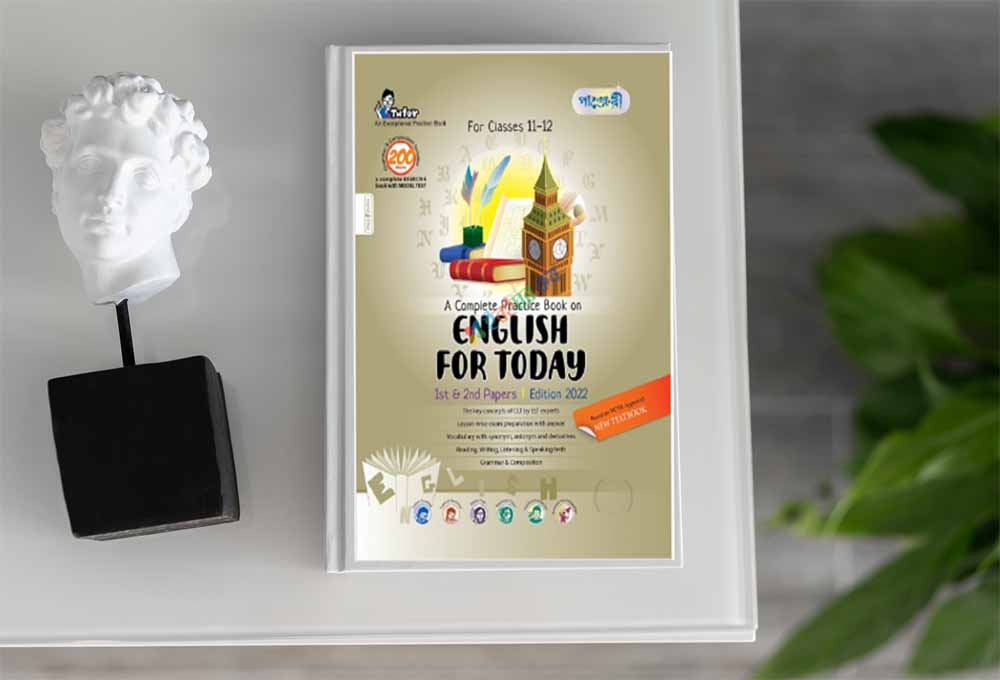HSC English1st paper model question with answer pdf-16
Solution to Model Question–16
1.A.(a) (ii) welcome (b) (i) etiquette and manner (c) (ii) on the basis of (d) (ii) unwillingness to allow (e) (ii) to speak with food in one’s mouth (f) (ii) guest (g) (ii) lifestyle (h) (iii) heritage (i) (ii) speechless (j) (iii) well-mannered (k) (ii) study at school (l) (i) opposing something (m) (iv) polite (n) (ii) effect (o) (iii) French (p) (ii) the rules of correct behaviour (q) (iv) polite behaviour (r) (iii) none (s) (iv) cultures (t) (iv) all of them (u) (iv) all of them (v) (ii) Get out (w) (iii) Thank you (x) (iv) narrate (y) (iii) attendance (z) (ii) marriage ceremony (aa) (iii) French word (bb) (iii) easy (cc) (i) obligatory (dd) (i) joy (ee) (iii) aware (ff) (ii) different (gg) (i) Manner is more important than ‘Etiquette’
- (a) Whenever we are before our elders, we greet them with respect. We listen to their direction and most often we remain passive.
(b) As the youngers have to remain quiet when they are in presence of the elders, they can’t express their genuine feelings. Even if they feel that they are to obey some illogical things, they can’t express that. So, they grudge over many things.
(c) The unwritten rule that the youngers have to listen to the olders or they are only the followers to the direction of the elders is protestable. As ‘to err is human’, the elders can commit wrong and that may be corrected even by the youngers.
- আরো পড়ুন: HSC English1st paper model question with answer pdf-06
- আরো পড়ুন: HSC English1st paper model question with answer pdf-07
- আরো পড়ুন: HSC English1st paper model question with answer pdf-12
- আরো পড়ুন: HSC English1st paper model question with answer pdf-13
- আরো পড়ুন: HSC English1st paper model question with answer pdf-14
(d) Manners is a term that indicates the behaviour that is considered to be polite in a particular society or culture. To offer something to the elders using left hand or speaking with someone with food in mouth are some examples of bad manners.
(e) There lies differences between ‘etiquette’ and ‘manners’. Etiquette means the correct behaviour of a society whereas manners mean the behaviour of a society which may possess good and bad things within it.
(f) We learn etiquette from institutions like family, schools, colleges or organizations we work at.
(g) Manners vary from place to place and occasion to occasion. In a wedding ceremony, people have to be joyful and callous. But at a debating club, the members have to be more formal in behaviour.
(h) We need to follow etiquette at every human habitation. It only needs not be followed where no human being is found.
(i) To become acquainted with a particular culture is a long process. A child knows about a culture through different inter-actions. Family, friends, schools and overall surrounding enable a child to become acquainted with its culture.

(j) ‘Pardon me’, ‘excuse me’ are some expressions which denote politeness. Everyday we have to go through different things. As we have to interact with different people in different situation, we need to be polite which we can express through these expressions. And we have to react to such expressions with similar politeness. They do not demean us rather express our nobility.
(k) People of different places are accustomed to different kinds of behaviour. The behaviour which seems to be correct in our society, may not be appropriate in other parts of the world. So, the manners differ in places.
(l) We need to be careful regarding our manners & etiquette because it is very important in our day to day life. We are social beings. There are rules of behaviour we have to follow in a company. So, we have to consider the effect of our behaviour on others.
(m) Yes, I think so. Because it is bound to make our day smooth and pleasant.
(n) Manner means the behaviour of a particular society or culture. Therefore, manners depend on the culture and tradition of a particular society which may vary from society to society and even country to country.
(o) Yes, I do agree. Manners very from place to place and occasion. The manners that are correct in a wedding reception will not do in a debating club. So the members have to be more formal in behaviour.
HSC English1st paper model question with answer pdf-16
- আরো পড়ুন: HSC English First Paper Barishal Board Questions and Answers
- আরো পড়ুন: HSC English First Paper Chattogram Board Questions and Answers
- আরো পড়ুন: HSC English First Paper Cumilla Board Questions and Answers
- আরো পড়ুন: HSC English First Paper Dhaka Board Questions and Answers
- আরো পড়ুন: HSC English First Paper Jashore Board Questions and Answers
- আরো পড়ুন: HSC English First Paper Rajshahi Board Questions and Answers
- আরো পড়ুন:HSC English First Paper Sylhet Board Questions and Answers
(p) The expressions ‘please’, ‘thank you’, ‘pardon me’, ‘excuse me’, ‘may I’ are very important to make our day smooth and pleasant.
- (i) A flow chart showing the etiquette and manners to follow is given below:
| 1. Showing respect to the elders | ® | 2. Remaining silent when the elders talk | ® | 3. Not showing grudges | ® | 4. Speaking in low voice | ® | 5. Abstaining from speaking with food in mouth | ® | 6. Saying ‘please’ & ‘thank you’ in everyday life |
(ii) A flow chart showing how a child becomes acquainted with its culture is given below :
| 1. Learning from family | ® | 2. Learning from parents | ® | 3. Learning from schools | ® | 4. Learning from friends | ® | 5. Learning through entertainment | ® | 6. Learning from surroundings |
Or, (i) are (ii) We (iii) French word (iv) Manners (v) is considered (vi) to be polite (vii) No one (viii) person (ix) learn (x) everyday life
Etiquette refers to the correct rules of behaviour among the people of a society. The word ‘manners’ means the behaviour of a particular society. It may be good or bad. As the children are supposed to be the future of a nation, they need to be acquainted with etiquette and manners well. It is a matter of practice which people have been following to maintain tradition.
The practice of etiquette and manners vary from society to society, country to country. What is an appropriate mode of culture in one country may prove to be inappropriate in another. Therefore, we have to be careful about learning and practising etiquette and manners.
উক্ত বিষয় সম্পর্কে কিছু জানার থাকলে কমেন্ট করতে পারেন।
আমাদের সাথে ইউটিউব চ্যানেলে যুক্ত হতে এখানে ক্লিক করুন এবং আমাদের সাথে ফেইজবুক পেইজে যুক্ত হতে এখানে ক্লিক করুন। গুরুত্বপূর্ণ আপডেট ও তথ্য পেতে আমাদের ওয়েবসাইটে ভিজিট করুন।











